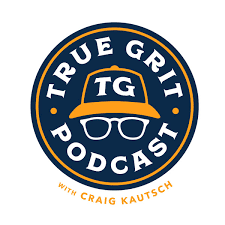All of us would like a good life, a better life, even a great life in different arenas: relationships, marriage, parenting, passions or purpose, for example. The best avenue to a better life is by engaging in self-improvement in what matters to you. Here are some tips about the What, Why and How of improving your life.
The What: Self-improvement is a well-known term that refers to a structured plan to be better in a significant area of life. That could mean in one’s self care, career, personal character growth, spirituality or relationships. It has a structure to it, as opposed to a more informal and organic desire to grow and change. The informal approach which can involve reading, conversations with interesting people and travel, for example. This approach can be helpful, but more often than not, it does not effectively move a person’s focus toward getting where they want to go. It’s a little like working out at the gym. The benefits from some sort of structure and plan will outweigh the path of going when we feel like it, or have the extra time.
The Why: Since self-improvement requires engagement, energy, time and other resources, you need to be clear on why it’s worth it. There are two fundamental reasons, being better and also not being worse. They encompass the motivators we sometimes call the carrot and the stick. In being better, self-improvement is worth the cost because we are on the way to having a higher quality of life. For example, taking a class in astronomy, hiring a coach, finding a therapist, or having a plan to read books and watch videos on starting a business, are all paths to doing something in the future that you currently are not able to. On the other hand, not being worse has to do with avoiding pain in our lives that is unnecessary. For example, health problems due to inactivity and poor diet, career disappointments, relational failures, depression, and substance use problems are outcomes you want to avoid. Both the desire to be better, and to avoid being worse, are legitimate motivators, though the first one should be a higher value.
The How: You will generally find the following necessary ingredients in beginning the practicalities of self improvement:
- Information: Data, facts, research and skills are critical to success here. Be a lifelong learner in several areas of life. This can also include a coach, or guide or expert, who has their 10,000 hours of competence in the area you’re interested in.
- Support: Research proves that the lone ranger approach is not as effective as having a few people who either are engaged with you in the process for their own benefit, or who are just friends who you ask to help keep tabs on you and encourage you. We are truly better together.
- Structure and path: What we calendar and plan on, is much more likely to actually happen, than what we think we will do when we have time. We are so busy these days that most of the time, “when we have time” just doesn’t happen. Putting practice, lessons, workouts or whatever into the calendar increases your odds dramatically.
- Monitoring: No self-improvement plan is as good as possible from the get-go. Every month or so, review the plan to see what’s working and what you can do better. You will be surprised at how some tweaks here and there will bring you to a higher level.
We are all “selves” and we are designed to “improve.” Make this part of your life.
Best,
John






